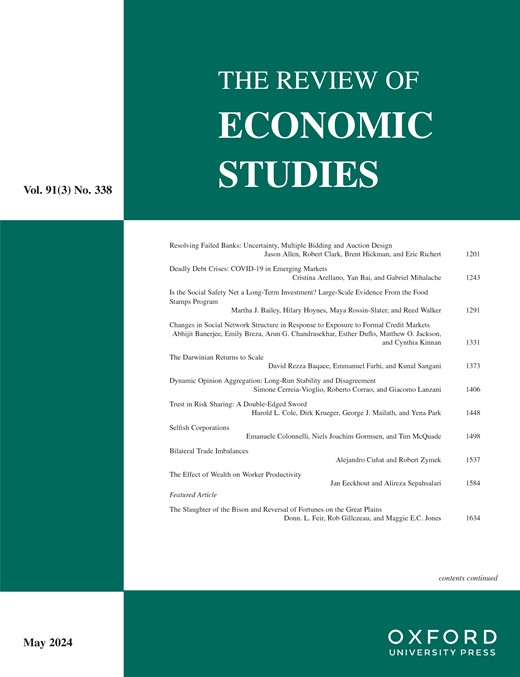损失资本资产定价模型
IF 6.4
1区 经济学
Q1 ECONOMICS
引用次数: 1
摘要
摘要本文为资本资产定价模型(CAPM)的实证失败提供了一种新的解释。在信息分散的理性预期经济中,随着时间的推移和投资者之间预期回报的变化会在投资者和经验主义者之间造成信息鸿沟。CAPM对投资者来说是成立的,但对经验主义者来说,证券市场的曲线似乎是平的。投资者预期回报的差异在很大程度上解释了这种扭曲,这在经验上是相当可观的;它提供了一个新的解释为什么“赌贝塔”(BAB)有效:BAB实际上是赌真实的贝塔。经验主义者在公开信息减少投资者之间分歧的日子里获得了更强的CAPM。本文章由计算机程序翻译,如有差异,请以英文原文为准。
The Lost Capital Asset Pricing Model
Abstract We provide a novel explanation for the empirical failure of the capital asset pricing model (CAPM) despite its widespread practical use. In a rational-expectations economy in which information is dispersed, variation in expected returns over time and across investors creates an informational gap between investors and the empiricist. The CAPM holds for investors, but the securities market line appears flat to the empiricist. Variation in expected returns across investors accounts for the larger part of this distortion, which is empirically substantial; it offers a new interpretation of why “betting against beta” (BAB) works: BAB really bets on true beta. The empiricist retrieves a stronger CAPM on days when public information reduces disagreement among investors.
求助全文
通过发布文献求助,成功后即可免费获取论文全文。
去求助
来源期刊

Review of Economic Studies
ECONOMICS-
CiteScore
10.40
自引率
3.40%
发文量
75
期刊介绍:
Founded in 1933 by a group of young British and American economists, The Review of Economic Studies aims to encourage research in theoretical and applied economics, especially by young economists. Today it is widely recognised as one of the core top-five economics journals. The Review is essential reading for economists and has a reputation for publishing path-breaking papers in theoretical and applied economics. The Review is committed to continuing to publish strong papers in all areas of economics. The Editors aim to provide an efficient and high-quality review process to the Review''s authors. Where articles are sent out for full review, authors receive careful reports and feedback. Since 1989 The Review has held annual May Meetings to offer young students in economics and finance the chance to present their research to audiences in Europe.
 求助内容:
求助内容: 应助结果提醒方式:
应助结果提醒方式:


